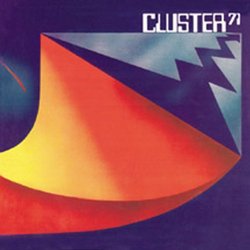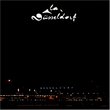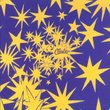| All Artists: Cluster Title: Cluster 71 Members Wishing: 2 Total Copies: 0 Label: Water Original Release Date: 1/1/2006 Re-Release Date: 2/21/2006 Genres: Dance & Electronic, Alternative Rock, International Music, New Age, Pop, Rock, Classic Rock Styles: Ambient, Electronica, Europe, Continental Europe, Dance Pop, Progressive, Progressive Rock, Psychedelic Rock Number of Discs: 1 SwapaCD Credits: 1 UPC: 646315716023 |
Search - Cluster :: Cluster 71
 | Cluster Cluster 71 Genres: Dance & Electronic, Alternative Rock, International Music, New Age, Pop, Rock, Classic Rock
On the outer edge of German space rock, Cluster '71 stands as a testament to minimalist "cosmische" music. The three untitled tracks composed and performed by Moebius and Roedelius are exploratory, ever-changing pieces wit... more » |
Larger Image |
CD DetailsSynopsis
Album Description On the outer edge of German space rock, Cluster '71 stands as a testament to minimalist "cosmische" music. The three untitled tracks composed and performed by Moebius and Roedelius are exploratory, ever-changing pieces with focuses on guitar distortion and synthesizer wails, though each goes far beyond. This album deserves the many accolades it's been given, and holds up as an early landmark in the history of beatless ambience. Water. 2005. Similar CDs
|
CD ReviewsExtraordinary 'Debut' from Cluster!!! Louie Bourland | Garden Grove CA | 09/13/2007 (5 out of 5 stars) "1971 marked yet another extraordinary 'debut' from the experimental German Krautrock scene - a dynamic duo known as Cluster. The band actually began life as Kluster and had released three albums under this name until founding member Conrad Schnitzler left for a solo career. With Schntizler's departure in 1971, Dieter Moebius and Hans-Joachim Roedelius carried on as Cluster and released a jaw-dropping self-titled album full of timeless innovation and experimentation. 36 years later, "Cluster 71" still sounds almost unlike anything from the period. It's also hard to believe that none of the soundscpaes heard on this album were made with a single synthesizer. Only electronic organs, a Hawaiian guitar and various electronic devices and amplifiers were used. Right from the start, this album hits a person in the face with the full-blown industrial attack of the 15-minute opening track all the way through the 21-minute closing piece. The music gives the impression that it was recorded in a large industrial plant with various machines performing their own sounds. This is especially apparent in the album's final piece. There really isn't anything that "Cluster 71" can be compared to (except for maybe Tangerine Dream's "Nebulous Dawn" from their 1972 classic "Zeit"). This album really takes on a life of its own once it hits the ears and is an amazing and somewhat frightening journey into the world of surreal sounds. As time would go on, Cluster would slowly begin to leave their abrasive soundscapes behind them opting for a more melodic and quiet approach. This album shows Cluster at the beginning though - a fresh duo of individuals who weren't afraid to experiment on all four cylinders and successfully pulling out all the stops in the end." More great experimental music BENJAMIN MILER | Veneta, Oregon | 11/20/2007 (5 out of 5 stars) "Cluster was one of those groups that I've been long aware of been not until now that I tried anything from them. The group was previously known as Kluster, but with ex-Tangerine Dream member Conrad Schnitzler leaving for a solo career, Hans-Joachim Roedelius and Dieter Moebius continued on as Cluster. It has to be noted that Roedelius was considerably older than your typical Krautrock musician. He was even older than the members of Can, he was born in 1934 (meaning he was even a bit older than Elvis Presley), while the oldest member of Can (Irmin Schmidt) was born in 1937. That meant he most likely had a background in 20th century avant garde classical, rather than rock. Anyways, Cluster '71 (released in 1971, obviously) was the first album under the Cluster name, and what's really interesting is all the sounds you hear come off sound generators, organs, and guitars, no synthesizers. Kraftwerk from around the same time, happened to be using similar gear and often got similar sounds, although they obviously had a different musical approach. And like Kraftwerk at that time, Cluster was recording for Philips. But Cluster had an even more minimalist approach, often emphasizing drones, bleeps, and blips, done in a completely non-conventional manner. Like what Tangerine Dream was doing around the same time, you won't find any melodies that you'll find yourself humming, not to mention you might find quite a few people who will not like this album, some would write it off as noise. But then what Tangerine Dream was doing around the same time gave people a similar reaction. So if you don't mind Zeit, don't mind "Aumgn" from Can's Tago Mago, or the early experiments of pre-Autobahn Kraftwerk, you shouldn't have much problems with what Cluster was doing early on, and this is a great album of experimental music that I highly recommend!" Mystery in a CD Chris Carter | my music room | 10/06/2008 (5 out of 5 stars) "Easily my favorite Cluster album and one of the best '70's German albums, in my opinion. When it starts, you are transported to a dark, foreboding realm - this is surreal, amusical, (I was gonna say arhythmic, but there are pulsing machine-like rhythms going on - no drums) imaginative and awesome! For me, the best psychedelic albums achieve a definite mystery, i.e. who did this/what were they thinking/what drove them to produce these sounds. It is obvious that these two were completely uninterested in attaining massive popularity, and one gets the feeling, listening to this late at night on headphones (best way to experience it), that they really didn't know what they were doing - they just WENT FOR IT AND TRUSTED THEIR INTUITION. Their later releases are fine, but this one definitely has the mystery. The imaginary soundtrack to some German machinist doing acid in a factory at 3 in the morning - f*@king killer."
|

 Track Listings (3) - Disc #1
Track Listings (3) - Disc #1

